This is a transcript from an article originally published in “Once A Week” Jan – June 1867 by John Bowring. It’s a fascinating glimpse of pixies in nineteenth century Devon, a county in south-west England.
The article was converted to text by the Internet Archive using OCR. I have corrected some mistakes resulting from the process of converting the original scanned image to text but I haven’t changed the spelling (e.g. John Bowring’s spelling of the famous poet and playwright’s name as Shakspeare, rather than today’s accepted spelling, Shakespeare).
Pixie traditions are passing away. You may find now and then on the Moors, and the skirts of the Moors in Devonshire, peasants who will be willing to talk about those amusing sprites whose history is a sort of local heritage; and if you can get a rural chronicler launched into the full tide of friendly communication, starting with “’Ees ! ’eee ! I’ve a yeard tell o’en,” you may be sure you will be greatly edified, and find that the poetical and the imaginative element, having much raw material to work with, is well worth studying even among the untaught shepherds, who watch the wandering flocks scattered over the heather, and who from their rude granite-walled and straw-thatched huts by night have little to look at but the sky, the clouds, the moon and the stars, and by day the granite boulders, the golden gorse, the purple heath, and a few sparsely-spread wild flowers, waving grasses, and the scant herbage which adorn the downs.
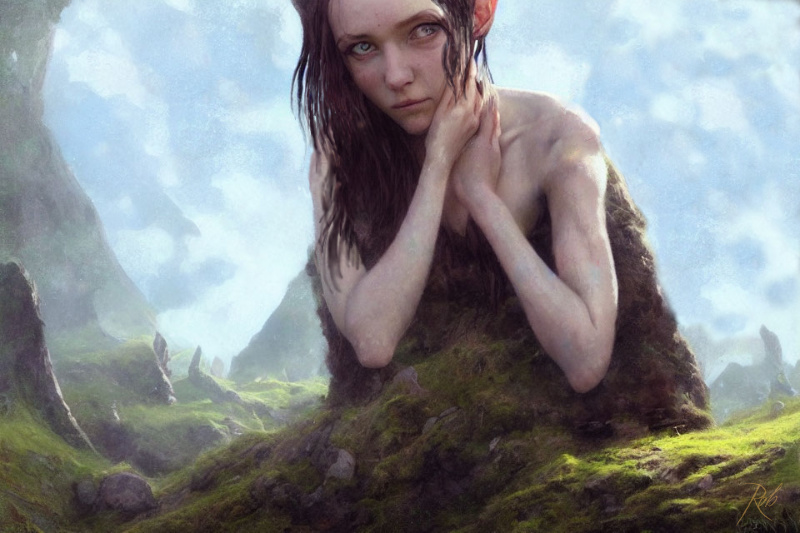
But I can remember the time when some- thing better than tradition interested me in listening to the tales of the Dartmoor rustics; for they spoke not only of what they had “a’ yeard on,” but of what they had “zeed.” Those were the old men of that generation, and as “’twas sixty years ago,” we were taken back considerably more than a century, to a time when ghosts and witches were as “common as blackberries,” and any one doubting their existence would be overwhelmed with a weight of evidence quite sufficient to crush incredulity. Not to believe in ghosts and witches was to be as bad as “a wicked infidel.” John Wesley himself denounced those who denied their existence as “deniers of their Bible.”
Ghosts and witches were almost always associated with fears, and frights, and visitations of evil; but the pixies were joyous, happy, loving, dancing, singing, sportive little creatures. They were social, not solitary. They played many tricks, all for fun or for discipline, never for malignity. If they did mischief, it was to punish, to reprove, to correct. Everybody thought it better to laugh at than to quarrel with them — better to be regarded as their allies than their enemies. So little did they impress my childish thoughts with terror that I absolutely longed, when taken to see the green turf on which they held their moonlight revels —
By fountain dear, or spangled star-light sheen,
the granite basins in whose crystal waters they bathed, the tangled recesses into which they retreated from mortal observation, — I longed and languished for an opportunity of looking on them, of knowing from my own experience that they really existed. But alas ! though the territory over which they ruled was most familiar to me, I never, sooth to say, have been privileged to see an individual of the race.
They were strangely blended in my mind with Queen Mab , and Oberon, and Titania , and Puck, and the other Shakspearian creations, and I often fancied that Devonian story had reached the ears of that bewitching wonder-worker, who turned pebbles into jewels, and found in everything a soul of beauty and of truth, — found it himself and revealed it to the world. Assuredly the rough rustics of the moors never heard of Shakspeare, but they tell the very tales which he has “married to immortal verse,” and the deeds of Puck and his comrades are but the records of the daily doings of the pixie people, who —
Frights the maidens of the villagery;
Skim milk, and sometimes labour in the quern,
And bootless make the breathless housewife churn;
And sometime make the drink to bear no barm[1];
Mislead night wanderers, laughing at their harm?
[1] An old Devonian word for yeast
“Midsummer Night’s Dream,” Act ii. Sc. 1.
The peat-bogs of the moors of the Dart and the Exe are the very places into which the pixies beguiled their victims, often youthful lovers who went out courting after sunset, and were left “stogged in the mux” and “begegged” in the “neart,” till on “the dimmet,” the first break of the twilight, their tormentors disappeared and relieved them from the derisive laughter which was not the least of the annoyances inflicted by the imps.
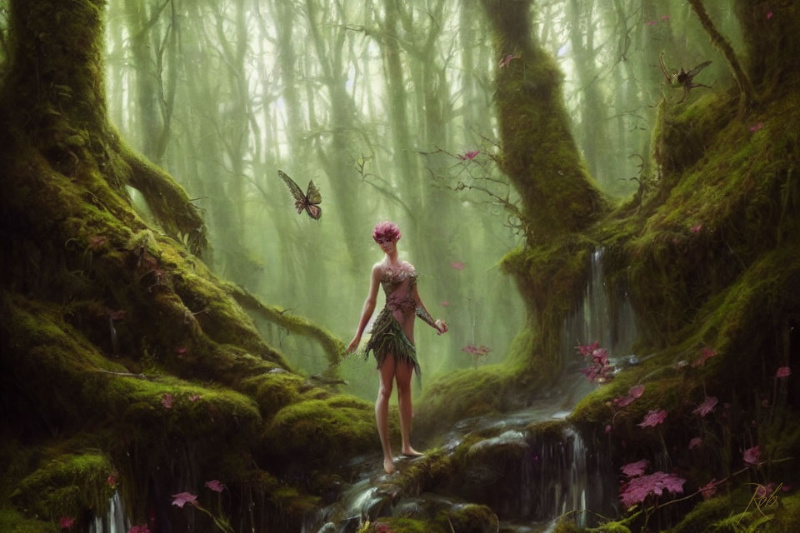
Shakspeare’s Puck revels in the variety of devices by which he entices the objects of his attention into brakes (furze-covered ground) and quagmires. He transforms himself into various animals, the better to carry on his trade. The Devonian traditions do not incarnate the pixies as the instruments of delusion, but represent these instruments as being under the command of the directing influence. Puck says —
I’ll follow you, I’ll lead you about a round,—
Through bog, through bush, through brake, through briar;
Sometimes a horse I’ll be, sometimes a hound,
A hog, a headless bear, sometimes a fire,
And neigh, and bark, and grunt, and roar, and hum,
Like horse, dog, hog, bear, fire, at every turn.
The pixie is not any of these, but he commands and controls them all.
A contemporary of Shakspeare, Drayton, in his “Nymphidia,” gives some further details of Puck’s proceedings, which are abundantly warranted by Devonshire authorities.
This Puck but seems a dreaming dolt,
Still walking like a ragged colt,
And oft out of a bush doth bolt,
Of purpose to deceive us.
And leading us makes us to stray
Long winter nights, out of the way,
And when we stick in mire and clay,
He doth with laughter leave us.
But the pixies in Devon are decidedly cleverer than Puck himself, for they do not wet their feet on the mud, and not being “dreaming dolts,” they mount the “ragged colts” of the farmers, and use them for seducing their owners, amusing themselves by tangling their manes and tails into “pixie-rings,” as may be “zeed” to the present hour by any one who will take the trouble to verify the fact, and ask any Dartmoor shepherd-boy to point out the pixies’ hosses.
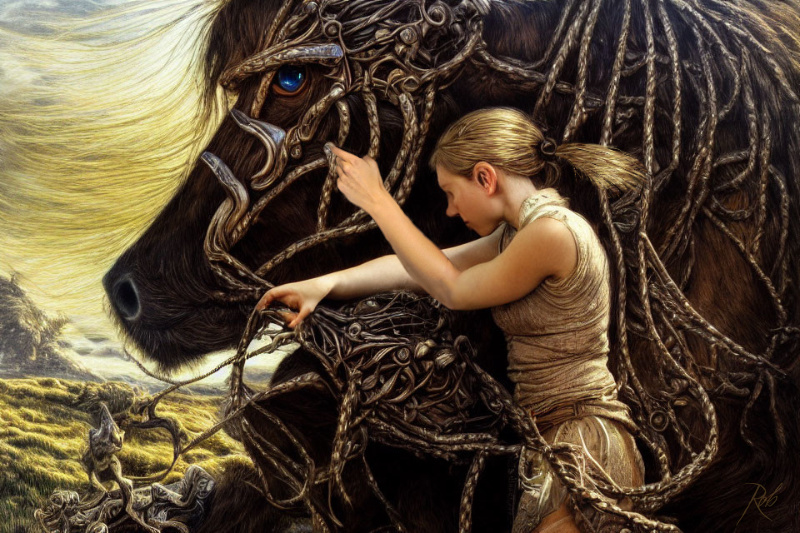
In Devon I never heard the name of the pixies’ king. I dare say Shakspeare was right, as he generally is, in telling us it was Oberon; but in these days, when the derivation of almost any one word may be traced up to almost any other word, between Puck, pucksee , and pixie, any one may undoubtedly establish a satisfactory analogy. I remember in Smyrna, when some odd oriental usage was remarked on, which had been introduced into a family half English half Levantine, the excuse of the housewife was — “You know that when one is in Turkey, one must do as the Turkeys does.” The reasoning was allowed to be conclusive, and the pixies and Puck are surely as nearly allied to one another as Turkeys and the Turks.
It is quite dear that the Shakspearian Puck learnt his tricks among the Devonian pixies. Hear what he says : —
I am that merry wanderer of the night.
I jest to Oberon, and make him smile,
When I a fat and bean-fed horse beguile,
Neighing in likeness of a filly foal;
And sometime lurk I in a gossip’s bowl,
In very likeness of a roasted crab;
And, when she drinks, against her lips I bob,
And on her wither’d dewlap pour the ale.
The wisest aunt, telling the saddest tale,
Sometime for three-foot stool mistaketh me;
Then slip I from her bum, down topples she,
And tailor[2] cries, and falls into a cough,
And then the whole quire hold their hips and Ioffe;
And waxen in their mirth, and neeze[3] and swear
A merrier hour was never wasted there.
[2] Squatting down as a tailor.
[3] “laughter bolding both his sides.” Milton.
How much more delicately does Titania deal with her subjects, and in what a graceful spirit call upon them to minister to her behests.
I’ll give thee fairies to attend on thee,
And they shall fetch thee jewels from the deep
And sing, while thou, on pressed flower, dost sleep;
And I will purge thy mental grossness so,
That thou shalt like an airy spirit go.
Titania undoubtedly was thinking of Devon when she expressed her longings : —
I do but beg a little changeling boy
To be my henchman;
for Devonshire, is above all other lands, the land of changeling boys and girls, and the pixies had a great deal to do with these transformations. I recollect hearing the history of one who had the gravity of an ancient woman from her very childhood, who talked as if she were fifty years old, when she was only five. They called her “The Bee” and she “gathered honey every day.” It must have been a portion of the ambrosia, and helped to famish the metheglin of the pixie court. Certainly it must have been for one of these precocious little creatures, full of wit and wisdom, brains in their toes and in their fingers’ ends, that the Fairy Queen expressed so strong an affection. Out of a “changeling” Shakspeare might have created an Ariel to meet the pixies : —
On hill, in dale, in forest, or in mead,
By pav’d fountain, or by rushy brooks,
Or on the beached margent of the sea,
To dance their ringlets to the whistling wind.
The pixies were great explorers, familiar with the caves of the ocean, the hidden sources of the streams and the recesses of the land; but they had their favourite haunts for their routs and revellings; they had a hierarchy of rank; and the subordinates had their tasks appointed to them by the superior authorities. Titania tells us how, after “a roundel and a fairy song,” she sends them
For the third part of a minute, hence,
Some to kill cankers in the musk-rose buds.
A very benevolent purpose. In Devonshire the eglantine is called the canker-rose; and her soldiery she orders out
To war with rear-mice[4] for their leathern wings,
To make my small elves coats; and some, keep back
The clamorous owl, that nightly hoots and wonders
At our quaint spirits.
[4] A Devonshire word for a bat.
And here I cannot refrain from referring to that exceedingly beautiful passage, which belongs to the same act in the same play from which I have been quoting, in which the pansy, bearing in the west its poetical name to the present day, — is called the “western flower” in the well-known compliment to the Virgin Queen : —
The fair vestal, crowned by the west.
The imperial votress who passed on,
In maiden meditation, fancy free;
Yet mark’d I where the bolt of Cupid fell;
It fell upon a little western flower,
Before milk-white, now purple with love’s wound;
And maidens call it “love in idleness.”
All these fancies Shakspearian and traditions Devonian, being blended, somewhat confusedly in my mind—
I had a dream — The pixie queen and court
Came down from Heltor’s heights— a choir of bees
Choruss’d their advent, and the vernal gales
Perfumed their path with odours heather-born:
Her name Titania — ’twas the evening hour;
She sat upon a pearly nautilus,
And it was fringed with glow-worms— while it roll’d
On wheels the dews had silver’d. Butterflies
Her steeds; and round her floated fairy-girls,
Who from the Demoisels had borrow’d wings;
And, as their sovereign lighted on the earth,
They sang soft songs, and follow’d in a train
To a rude bason on a granite rock,
With crystal water filled, in which they bathed;
Rising refresh’d, they shook their golden locks,
And tripp’d away to an adjacent sod,
Green, flowery, soft, and there, in mazy rills,
Danced till the rising of the matin star,
Then hasten’d with swift footsteps to the grots
In Heltor’s rifts, with moss and lichens lined;
The cock crows hailed for earth another dawn,
The carolling skylarks took the news to heaven;
The moon was lost in daylight, and the sun
Assumed his undivided sovereignty.
It was said, very much in accordance with the Shakspearian representation, that various missions were assigned to the pixies by their rulers, of the success or failure of which they were expected to give an account for the entertainment of their companions and of the pixie court. Sometimes the rustics discovered and thwarted their purposes, but the plans were generally too well laid to be detected or prevented. It was their special duty to punish the incredulous for their incredulity, and to play their tricks upon hunks and scolds; to awaken jealousies among lovers, and above all other sports, to “employ Jack and the Lantern” to beguile the peasants into wet marshes and vuzzy -brakes (gorse-heather).
To bewitch the cows’ udders, so that they would give no milk, to pull away the stool from under the milk-maid, and to burst into laughter when they saw her lying on her back, to spoil the rennet, to prevent the milk from curdling, to turn the cider sour in the cellar during thunder-storms, or to pull out the spill, so that the beverage should be wasted on the floor, to knock the cider-flask out of the hand that was lifting it to the mouth, and to pour its contents into the bosom of the would- be drinker; to drive the pigs with stinging- nettles into woods or ditches, and then, by deceitful grunts and noises to misdirect the lads who had been sent forth in search of the wanderers, these are among the tricks of common life; but at times bolder adventures were attempted, such as stealing the sermon from the curate’s pocket when he was mounting the pulpit stairs, on the rare occasions when the rector was to be among the auditory; to cause the doctor’s horse to trip and to fling the rider when he was on the way to the squire, who had required his immediate presence, having broken his arm in a fox-hunt; to put back the ‘tumey’s (solicitor) watch a full hour, so that his case was disposed of before he could get to the ‘sizes. Of such stories rich gatherings might have been made a century ago, but they have passed into oblivion with their narrators.
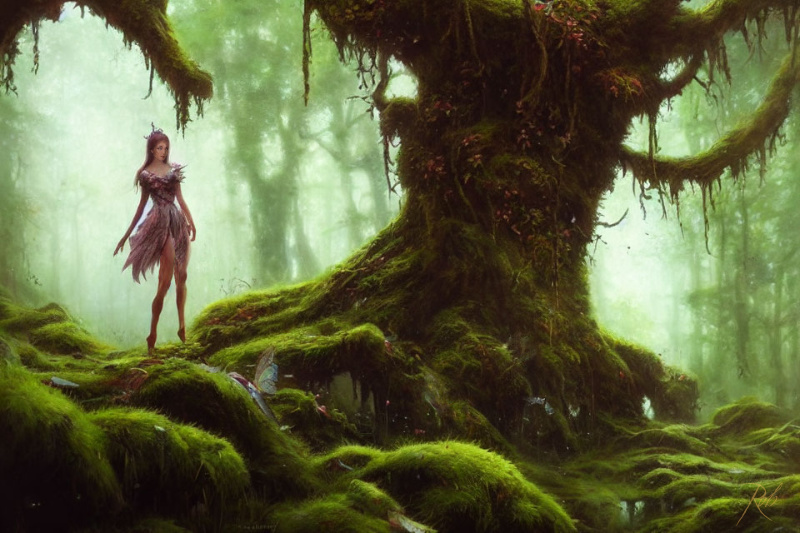
A pixie meal has been described as taking place in a recess where the carpet is of green moss, a large fungus the central table, and the guests are seated around upon mushrooms, which are generally called pixie stools by the Devonshire peasants. Barberries and whortle-berries are introduced on leaves, and attendant bees bring in honey to sweeten them, bluebottles carry dew in buttercups and harebells, and thrushes sing songs during the repast. It is said that their domestic quarrels, which are not unfrequent, and generally are attributable to some jealous annoyance, are settled at these festivities. These little misunderstandings, and the mischievous character of some of the pixie tricks, are considered evidence that they do not belong to an angelic race, and are not wholly free from the infirmities which characterise sinful and mortal men. They constantly display their benignant qualities towards their favourites. If, during the night, they torment some with pinches and nightmares, they visit others with pleasing dreams. If it is the business of some to perplex and molest the objects of their dislike, others are engaged in fanning the winter fires, helping the leavening of the loaf, sharpening the knives, sweetening or strengthening the cider, encouraging the ewes to bear twin lambs, filling the cows’ udders with milk, and rendering all sorts of kindly services to those they look on with a friendly eye. And among the rustics to have the good-will of the pixies was a strong recommendation in the family and the social circle.
It is not easy in old age to give distinctness to the recollections of impressions which had in them something undefined and shadowy even when they were made on the susceptibilities of youth. I had a great desire to know something more about the pixies than I could learn from those who, while they most religiously believed in their existence, had an apprehension that if they exhibited too much curiosity and pushed their inquiries too far into the mysteries of the pixie world, they would be punished for their irreverent daring. Though they did not say so, yet they felt like the blue-eyed maiden of the poet-laureate, that “doubt is devil-born,” and that their souls’ perdition or salvation was in some way or other involved in the rejection or reception of the evidences of the supernatural world which they believed to exist around them. What seems very silly to the enlightened may be very sacred to the ill-instructed, and if authority could rule the matter, ghosts and witches would form a part of authentic history at an epoch not much anterior to our own. It was one of my early fancies that a pixie had communicated to me, while I was asleep, some particulars of their nature and mode of life.
We know not whence we came nor where we go,
But only that we are. We live, we love;
Life has its cares and pains, but not like yours;
Love its perplexities, its hopes, its fears,
Its jealousies, not such as trouble men.
Created, and not self-existent, we
Must be imperfect, for perfection dwells
With God alone. Yet we have powers above
Any to men conceded, we can hear
Sounds which to you are silence, and to us
Your music is but discord; many a sight
Veil’d from your eyes to us is visible,
We touch what you can reach not,— all the change
Of seasons, night and day, and foul and fair,
Affect us not; above you and beneath
We visit, where no mortal foot has trod;
We know no disobedience to the powers
That rule us. Order is our law supreme,
Much is unknown to us, but this we know,
That we were made for happiness. We talk
Of past, of present, of what is, has been,
And may be, but the toil be is not ours,
Nor can we draw aside the veil that hides
The mysteries only known where all is known.
It has been remarked with much truth that if some of the monastic orders sought the seclusion of desert and desolate places for the purposes of penitence, others with a view to enjoyment appropriated the most beautiful spots for their domicile. Though the Devonshire pixies were fond of locomotion, and had their places of retreat in the less accessible parts of the mountains and the moors, yet nature’s charms had to them special attractions, and many of the tales told are connected with the Devonian woods and waterfalls. Bocky Fall, Fingal Bridge, Combes, (valleys) on the banks of the Dart and the Teign, have been pointed out as among their favourite haunts. I have heard the tale of a shepherd boy who fell asleep in the midst of his flock, with whom a quartet of pixies determined to amuse themselves. One fastened him to the ground and kept his eyes dosed, another tickled his nostrils with barley beard, a third cried “Wolf! Wolf!” in his ears, and the fourth bewitched the sheep, which fled scampering away in all directions. After holding their victim for some time in agonised helplessness, they released him with screams of laughter, while the poor lad run affrighted into a furze-bush, where he was found by his master, covered with scratches and bruises. But the pixies having enjoyed the fun, collected the sheep together, and all was well as it ended well.
The pixies were never represented as having any religious rites or services. They were not reputed ever to have taken part in ecclesiastical matters. In Catholic countries popular superstitions are not unfrequently made subservient to priestly influence. The rural clergy in the ruder districts of Devon were formerly little superior in intelligence to the rustics among whom they lived, their habits were moulded to the civilisation which surrounded. In listening to their stories —
I, a credulous, confiding youth,
Doubted no more than they; why should I doubt?
Their ignorance was faith, but mine was bliss,
And now that age and philosophic thought
Have swept the bloom of young romance away,
The pixies all have fled — like other dreams.
JOHN BOWRING
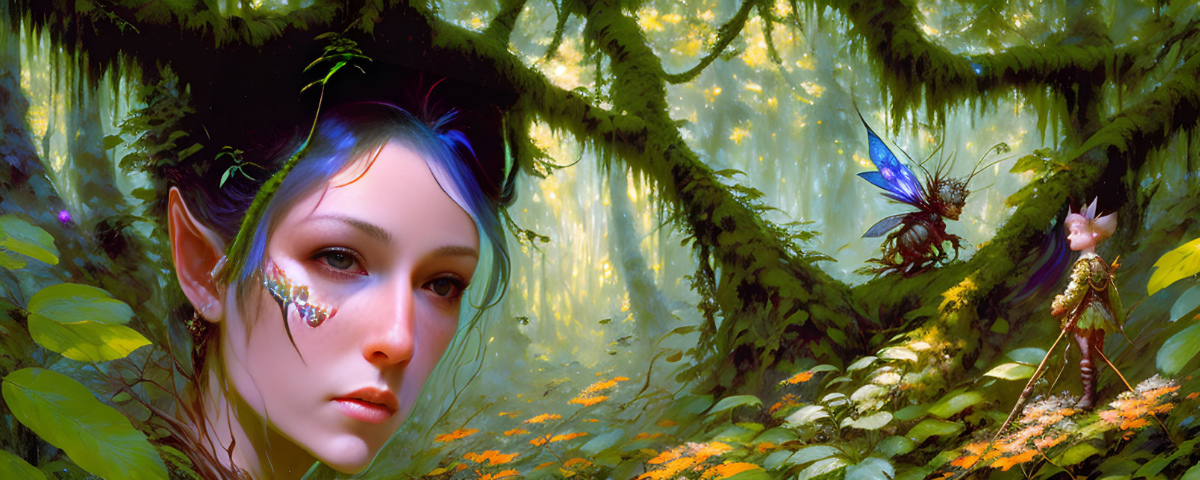
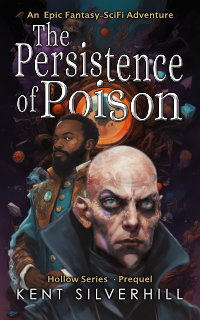
Leave a Reply